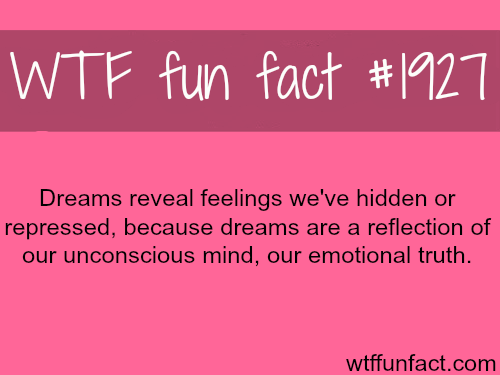
Some of the most bizarre aspects of our bodies are quite frightening. Let's explore some of more fascinating and obscure functions found in the human body.
The human heart is capable of beating out a whopping 100,000 times a day. This may not seem like much but think about this: If your heart stopped pumping every second for one day, then you would die. It can also squirt blood up to 30 feet away.
The human eye contains more than five hundred million pixels. This is nearly half a million times larger than an average cellphone. Due to the cilia attached to the eyeball that attach to it, a human eye can grow up to twice the size of a football.
The human eye also produces enough light to illuminate a small room. There are approximately 100,000 miles total of blood vessels in the human anatomy. These arteries transport oxygen from the blood to the tissues.

There's also an entire system called the "diving reflex" that shuts down certain bodily functions if we're submerged under water. The pupil in our eyes expands by approximately 45% when we are able to see something pleasing.
Also, we have an appendix. If left untreated, this organ can become infected. In fact, it is possible to remove up to 80% of the liver.
The human body has many wonders. It can make seven bars of soap from its fat. It is also home to hundreds upon millions of bacteria. The skin, which is the largest organ in the human body, is oily, hairy and contains over one thousand species of bacteria.
The human body has the ability to perform many strange and mundane tasks. For instance, we blink 10 million times a year, but we also do the ominous. The mouth is also full of activity. Other than the obvious functions of your mouth, you can also swallow and breath.
There's also the toilet. Toilets are not only the largest and most important parts of a bathroom, but they also provide the primary source of reading material for an average home. The average person drinks around 20,000 gallons per year of water.

In addition to the obvious, there is also a "sneezing” function in the human body. Sneezing too hard can actually fracture a rib. In the human nose, there are over 8,000 tastebuds. Additionally, there are more than 100 cells on the tongue that can be used to taste food.
The human brain produces more than enough energy to power a light bulb. The human body can also produce 350,000 Joules of energy an hour, if you don’t include the ovaries. This is enough energy to turn a lightbulb on.
Another interesting fact about our human bodies is our "diving reflex", our largest organ, our eyes, and our ability to fly. Also, there are more cars on the road than humans. There are also more crayfish in seawater than humans. It's safe for us to assume that the human body is much more impressive then most people think.
FAQ
Did you know that there are approximately 1.6 billion metric tons of trash produced every day in the world?
According to the United Nations, the average person produces over 2.5 pounds of daily waste.That adds up to over 25 billion pounds of garbage per year!
Many of this trash ends in landfill dumps, or incinerators. But what happens if those dumpsters are full? The majority of this rubbish is sent out of the country. It is then shipped out and dumped in other countries. This pollutes the ecosystems. But now we know, thanks to one man. Mike Sexton is his full name. He is the founder of Waste Watchers. He watches over trucks that transport trash across North America. He then reports back about what happens next.
Sexton stated that he finds the job very satisfying. CNN asked Sexton if he thought it was a lot of fun. "You know, we see these big rigs come through town, and we'll follow them. "Sexton started following truck driver almost 20 years back.
"I just fell in love with it," he said.
He loved the story of the driver who pulled into an abandoned gas station near Los Angeles. Sexton recalls, "The guy was searching for somewhere to put his loads." "He drove along the road and saw this structure. So he backed up and went inside. "There were two large roll-off containers full of stuff. The man got everything out of the truck and began filling it up again. "The man looked around the area and decided to unload all of it. There were old tires and rags, furniture pieces, mattresses, mattresses and boxes. "It was a complete mess. But it had been cleaned out before he came along. There wasn't any trash anywhere."
What is the explanation? It is because the location used to belong to a recycling centre. People who found out about this facility would drive to it to recycle their trash. Sexton explained, "They would bring their household goods and take them here," and they would then empty the containers.
This can happen hundreds of times a week. This could happen hundreds times per week. Finally, the truck stops running completely due to its excessive junk. The owner eventually decides to dump the truck.
But, this isn't the only problem that our planet is facing.
These tiny plastic particles make up the majority of the particles. Some end up in incinerators or landfills. Others end up in rivers, oceans or the stomachss of fish.
Experts warn of a possible global food crisis if nothing is done. Experts warn, "If you keep going like you're going," we could soon face a global food shortage. But most people don't seem to be worried, even though scientists are unanimous in warning us that the world is heading towards disaster.
What is the most surprising fact about your body?
Two eyes, two ears, 2 nostrils, 4 limbs, 1 nose, 1 penis and one mouth are all there. It's true, we have more 50 parts of our body, but there is one thing missing. The heart.
The heart is a pump which circulates blood throughout the body. The blood moves through the veins. It transports oxygen and nutrients to your cells. It also removes carbon dioxide.
The heart pumps about 5 liters blood per minute. This is equivalent in daily coffee consumption to an adult who consumes approximately 2 to 3 cups.
Blood flows through the heart 24 hours a day, 365 days a year. When you're asleep, your heart beats approximately 100 times per hour.
Because of the color and texture of their skin, you can tell if someone is healthy or sick. You can see tiny blood vessels, called capillaries, when you look closely at the skin. These small vessels carry blood from the large blood vessel in the skin back towards the heart. When blood flow is blocked, the skin turns blue or purple.
Red blood cells are not available to sickle cell patients. Their blood becomes extremely sticky and hardened, which can lead to very serious illnesses.
If you cut yourself, a bandage is applied to stop the bleeding. Blood must continue to flow to allow the wounds to heal properly. To do this, doctors insert a needle through the skin into the vein next to the injury. This allows blood to drain from the area.
Doctors can also insert catheters into the artery close to the area where the bloodclot has formed. This keeps patients alive until the clot has broken up naturally.
Is there a Hollywood blacklist of actors?
There is a Hollywood blacklist.
But, the list has not been made public. As far as we know, the names aren't even known. It matters because of this.
The secret reason is that directors and actors who are on the blacklist would not be able to find employment. The studios would be out of business as they lose money. This would mean that they would cut back on movie production. The blacklisted filmmakers would have fewer chances. They could go bankrupt.
This could eventually lead to more victims.
In other words, if someone is trying to make an Oscar winning movie, they might have to sign a contract that says they won't speak openly against their employers. For any producer or director that wants to be nominated, the same applies.
You hear stories of directors being pressured to remove scenes from films. Directors may threaten to quit projects that don’t align with their vision.
This is why Hollywood keeps a blacklist. You'll likely become unemployed if you say bad things about your employer. And that's not good for anyone.
It is not uncommon for people to be falsely accused. They have had to fight for their freedom.
We need to stop this kind of thing before it starts happening again. Everybody should be able to freely express themselves.
We need to get rid of Hollywood's blacklist.
How does your brain control the functions within your body?
To ensure that they work together, messages are sent by the brain to other organs. Everything that happens within your body is controlled by the brain. It tells your stomach how to digest food and your lungs how to inhale oxygen; it also tells your arms, legs and feet to move.
Your brain is composed of billions and billions nerve cells, connected in groups called neurons. Neurons communicate by sending electrical signals, called action potentials, on axons. Each neuron has its own cell membrane around its nucleus. Channels within the membrane allow ions such potassium and sodium to enter and leave the cells. The neuron fires when there is ion movement.
Neurotransmitters, which are chemicals that release neurotransmitters when a neuron fires up, can be found in the space between the neurons and the next one. Neurotransmitters can bind to receptors at the second neuron. They open ions channels, allowing ions to move in and outside of the channel. This causes the second neuron to fire too.
Neurotransmitter release occurs when the presynaptic neuron receives an impulse from another neuron. The impulse travels along an synapse between the neurons. The transmitter binds with the receptors of the postsynaptic nerve, activating the firing of the postsynaptic neurons.
The nervous system relies on neurotransmitters for communication. They also help coordinate activity between different parts of the brain.
Statistics
- A 2012 paper published in the Proceedings of the National Academy of Sciences reported that people blink about 15 to 20 times each minute, meaning, if you do the math, you spend about 10% of the time that you're awake blinking. (romper.com)
- Your mouth makes a lot of saliva every day It might seem like way too much, but your salivary glands typically produce anywhere from 0.5 and 1.5 liters a day, according to a 2009 study published in the Journal of Medicine and Life. (romper.com)
- According to a 2018 study published in Free Radical Biology & Medicine, this is because blood pressure is regulated by our innate circadian rhythm and internal clock. (romper.com)
- "It is estimated that 75% of people have at least mild gum disease, with the most common symptoms being bleeding when brushing, bad breath, and dark and swollen gums," Dr. Ron Baise, a London-based dentist, tells Romper. (romper.com)
- In one 2014 study published in the Archives of Medical Science that sought to study the prevalence of these mites, research showed that 41% of the people had them hanging out in their eyelashes. (romper.com)
External Links
How To
Hollywood Actors With Dark Past
We have all heard of actors with dark pasts. However, we won't be able to go back in history and ask them directly. It's possible to find out more about these actors' lives by not digging too deeply.
Internet is a great tool to find information about celebrities. You will not only find fascinating facts, but you will also be able to learn about their lives.
For example, let's say you're curious about Samuel L. Jackson's childhood. If you type his name into Google, you'll probably come across a website called "SamuelLJacksonChildhood." This website contains photos of him in his youth, articles about the family, and even a bio.
Although it might seem boring, this information could be useful in helping you to better understand Samuel L. Jackson. For example, you may be surprised to hear that he was raised in a rough neighborhood but rose to prominence after overcoming many obstacles.
You might find yourself inspired to overcome your difficulties, or perhaps you discover that Samuel L. Jackson has a movie set based on his own life. Either way, personal experiences can help you connect more deeply with Samuel L. Jackson.
There are plenty of websites like this online. You can use them to learn more information about the lives and times of famous people. You might be surprised by some of the facts you uncover!